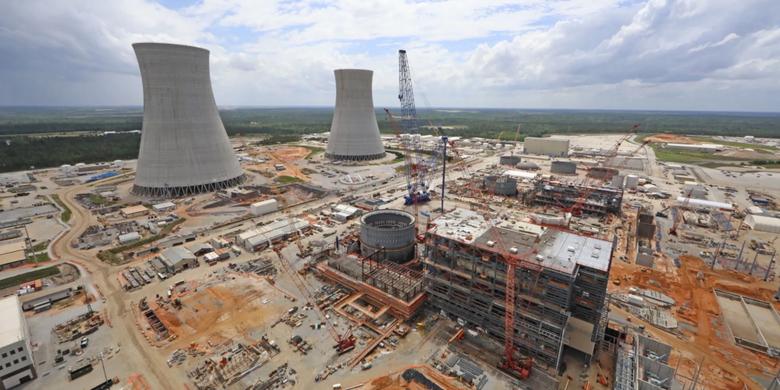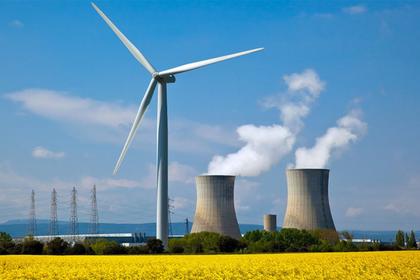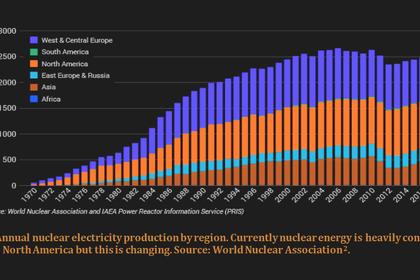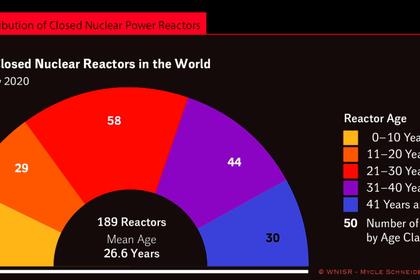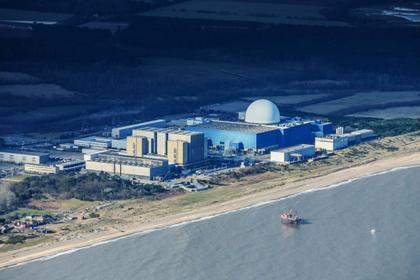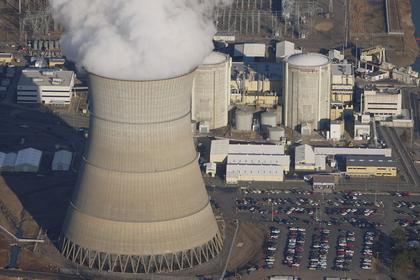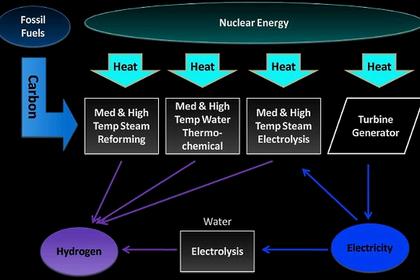Opening remarks: Committee chairman Sen. Joe Manchin (D., W.Va.) highlighted the importance of maintaining the nation’s position as a global leader in nuclear energy and called for pushback against strategic efforts by China and Russia to supplant the United States in this role. “With the necessary policy and funding, we can maintain our nuclear supply chain, create high-paying manufacturing jobs, and reassert that U.S. leadership,” he said.
Manchin also stressed the importance of nuclear energy in providing reliable, affordable power and reducing global carbon emissions and expressed concerns over recent plant closures. “Without new construction or the preservation of the existing nuclear fleet in the U.S., achieving a sustainable energy system will be more challenging and expensive,” he said. “Every year in the U.S., nuclear-generated electricity prevents more than 506 million metric tons of carbon dioxide from entering our atmosphere. If we are serious about meeting our climate goals without sacrificing reliability, we must protect our existing fleet.”
From the Q&A: In a discussion on the premature shutdowns of U.S. nuclear power plants, Manchin asked TVA’s Lyash why these facilities are being taken off line. Lyash said that the markets do not recognize the full value that nuclear plants provide, including the ability to operate for decades at 98 percent reliability. Also, nuclear is the second cheapest energy source on TVA’s system, behind hydroelectric, Lyash said.
X-energy’s Sell added that the deregulated market has produced a design failure that fails to value nuclear’s baseload, emission-free attributes, and that he hopes Congress and the states can help resolve this.
Sen. John Barrasso (R., Wyo.), the committee’s ranking member, asked Hogan Lovells’ Roma why U.S. leadership in the nuclear energy sector is critical and what the consequences would be of losing nuclear deals to Russia and China. Roma said that the United States has historically played the role of global leader in nuclear energy, which has led to nonproliferation policies and ensured that U.S. safety standards are widely adopted. Global leader status also allows the United States to develop and strengthen relationships with other countries that are building new nuclear plants, she said.
In addition, Roma noted that Russia has used its work in foreign countries for geostrategic purposes and that when the Chinese build, own, and operate a nuclear power plant in a foreign country, they can foreclose on it, which allows them to exert their economic interests further into that country.
On the subject of fuel, Barrasso noted that Congress last year appropriated funds to establish a strategic uranium reserve and asked the UPA’s Melbye to speak to its importance. Melbye said that the uranium market has been crushed by predatory pricing by state-owned entities abroad, adding that while the United States has the infrastructure and expertise in place to recover and thrive in the uranium industry, support is required.
Turning to TerraPower’s Levesque, Barrasso inquired about the benefits of the company’s Natrium advanced reactor. Prefacing his response with an endorsement of subsequent license renewals for light water reactors, Levesque said that the Natrium reactor is a sodium-cooled device, with a low-pressure system that operates hundreds of degrees centigrade from the boiling point of sodium, offering safety benefits. He also noted that TerraPower has followed the grid impacts of the growing expansion of wind and solar—namely, grid resiliency issues and energy storage needs. With Natrium, Levesque stated, heat is stored in large molten salt storage tanks, which means it is the first nuclear reactor to offer energy storage.
Sen. Lisa Murkowski (R., Alaska) asked about microgrids and microreactors and if Congress should create new exemptions for this advanced technology to allow for greater commercialization opportunities. Roma noted that while the Nuclear Regulatory Commission has a design certification process, the process is very drawn-out, taking decades. She said that this process makes no sense for microreactors and that legislation to support streamlining the review process would be helpful.
Sell discussed the Defense Department program to design microreactors for forward operating bases, which he expects to yield deployments by 2024, while Levesque advocated for legislation to empower the NRC to consider new approaches to regulations and said the agency is a critical part of a “Team USA” approach to exporting nuclear technology.
Sen. Catherine Cortez Masto (D., Nev.) asserted that the issue of nuclear waste must be addressed and that every state should be treated equally. She referenced her Nuclear Waste Informed Consent Act and asked about the status of the domestic nuclear workforce. Melbye said that his staff is older and that they struggle to provide mentoring to younger individuals, but that he is confident that university programs are ready to take on the next generation. To Cortez Masto’s question on how advanced nuclear technologies should compare to in-use technology when it comes to the production of nuclear waste, Sell said that X-energy’s waste profile was an improvement from existing technology, with less waste per megawatt-day.

